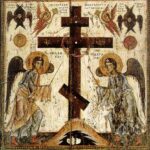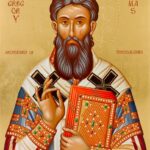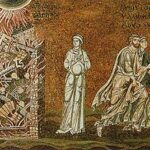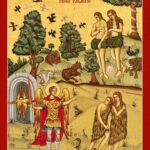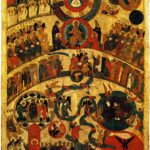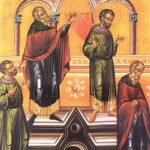Uniquely Orthodox
by Fr. Jonathan H. Cholcher Orthodox Christianity is unique among all the other varieties of Christian belief, practice, and expression. Orthodoxy is the original way of Faith and Life given by our Lord Jesus Christ to His one Body, the Church (see Matt. 16:18; Eph. 4:4-6; Jude 3). Our Lord warns: “Heaven and earth will pass away, but My words will by no means pass away. But take heed to yourselves, lest your hearts be weighed down with arousing, drunkenness, and cares of this life, and that Day come on you unexpectantly. For it will … [Read more...]
Weekly Bulletin March 31, 2024
Flee Sodom and Gomorrah
by Fr. Jonathan H. Cholcher “Flee Sodom and Gomorrah. Flee the flame of every irrational appetite.” (Ode 3, Great Canon of St. Andrew of Crete) We pray this during the first week of Lent. The cities of Sodom and Gomorrah exemplify the depth of humanity’s sin especially practiced as sexual perversion. The story of these cities situated at the south end of the Dead Sea is recorded in the Book of Genesis, chapters 18 and 19. “Then the Lord said, ‘The outcry against Sodom and Gomorrah has been completed, and their sins are exceedingly … [Read more...]
Weekly Bulletin March 24, 2024
Daily Lenten Prayer Rule
Weekly Bulletin March 17, 2024
Weekly Bulletin March 10, 2023
ON FASTING (Extracts from the Fathers)
Weekly Bulletin March 3, 2024
- « Previous Page
- 1
- …
- 13
- 14
- 15
- 16
- 17
- …
- 22
- Next Page »
